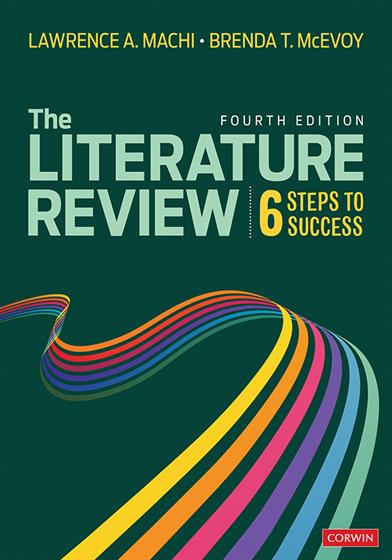
Hands-on, Practical Guidance for Educators
From math,
literacy, equity, multilingual learners, and SEL, to assessment, school counseling,
and education leadership, our books are research-based and authored by experts
on topics most relevant to what educators are facing today.
Bestseller!
The Literature Review
Six Steps to Success
Fourth Edition
The latest edition features new graphics illustrating the pioneering six-step model, tips for writing in the early stages, and new learning tools and reflection sections.
Product Details
- Grade Level: PreK-12
- ISBN: 9781071852903
- Published By: Corwin
- Year: 2022
- Page Count: 264
- Publication date: January 03, 2022
Price: $39.95
For Instructors
When you select 'request review copy', you will be redirected to Sage Publishing (our parent site) to process your request.



